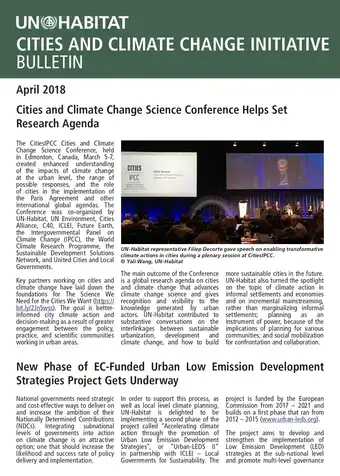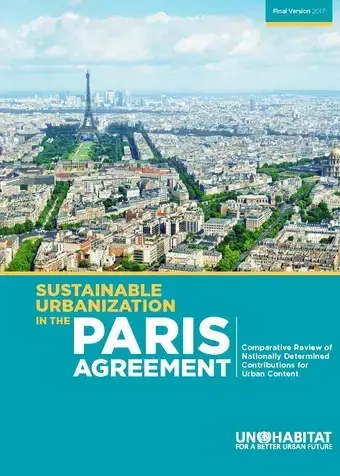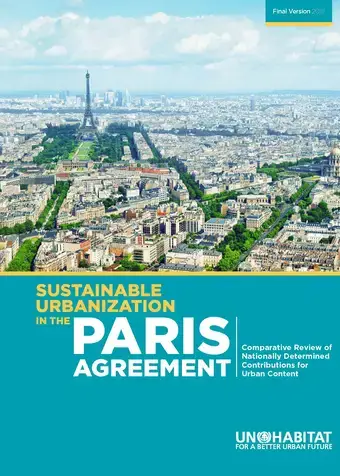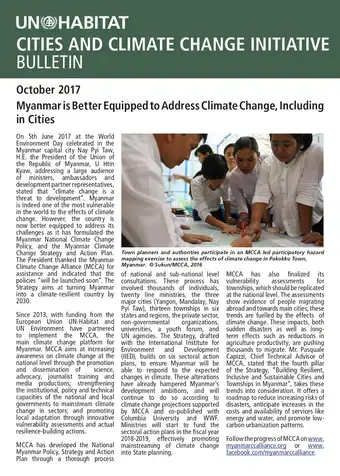
Articles of this bulletin:
UN-Habitat Discusses with Governments and Experts How Best to Address Urban and Human Settlements Issues in National Adaptation Plans
Leveraging Participatory Informal Settlements Upgrading for Climate Finance
Planners for Climate Action Moving Forward in Advocating Better Planning and Joint Action

 One of the greatest challenges for climate change adaptation is how to build resilience for the billion urban dwellers who are estimated to live in what are termed informal settlements . These settlements have been built outside the ‘formal’ system of laws and regulations that are meant to ensure safe, resilient structures, settlements and systems.
One of the greatest challenges for climate change adaptation is how to build resilience for the billion urban dwellers who are estimated to live in what are termed informal settlements . These settlements have been built outside the ‘formal’ system of laws and regulations that are meant to ensure safe, resilient structures, settlements and systems.





